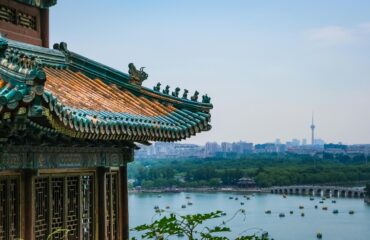by Giovanni Ferrari, Pedro Calixto, and Raul Li
Introduction
Ardian is a private investment firm with approximately $125bn in assets under management on behalf of over 1,200 investors as of 2021, having invested a total of $30.9bn of capital in the same year.
Founded in 1996 by Dominique Senequier as AXA Private Equity, it initially served as the Private Equity (PE) arm of the French insurance group AXA. In 2013 Dominique Senequier led an employee buyout of the company, that is, a buyout that provides for a new ownership structure with a wide involvement of employees. The operator was thus made independent of the AXA group and was renamed to Ardian. Today it has more than 880 employees with 15 offices in Europe, America and Asia, securing an important global network. Ardian operates in the private capital market, so called to distinguish itself from the typical PE firm, given the importance of its activities across different types of investments that accompany the classic expansion and buy-out transactions. Ardian distinguishes its investments in three broad segments : Private Equity, Real Assets and Credit.
Private Equity
PE represents Ardian’s main investment class at over $93bn in assets under management. Its activities include the management of numerous funds differentiated mainly by the type of operations carried out. There are funds aimed at direct buy-out, expansion and growth capital. An important part of the PE business is then addressed to indirect investments, in particular secondary and primary. Additional funds are dedicated to co-investments. Secondary investments appear to be of considerable importance for Ardian, comprising over $16.8bn in investment in 2021, more than half of the total capital invested in that year.
In 2021 Ardian raised its biggest fund to date, the Ardian Buyout Fund VII, a buyout platform of €7.5bn. The fund strategy is to invest in companies with high growth potential, developed in their regional markets, and with the goal of supporting the management teams in turning the companies into global leaders in their niche. The fund will focus on four core sectors: healthcare, food value chain, technology, and services.
Ardian has a strong presence in Italy, having executed many successful investments. An example of a recent transaction of relevant dimension is the acquisition of a majority stake in Biofarma Group, an Italian company leader in the development, manufacture, and packaging of food supplements, probiotic products, cosmetics, and medical devices. In January 2022 Ardian acquired 70% of the company, with Enterprise Value (EV) having been valued at €1.1bn. White Bridge Investments, a relevant Italian PE fund, successfully exited the company while the founding family reinvested in the business for the remaining 30% stake.
This type of buyout represents an exemplifying operation for Ardian, where its expertise in the sector and availability of capital are leveraged to support ambitious companies in becoming global players through internationalization, buy-and-build strategies, and innovation. For Biofarma group the future development plan under Ardian’s control is, in fact, to expand into new global markets and to strongly invest in R&D to reinforce the company’s technology leadership.
Real Assets
Real Assets represents the second investment class in terms of assets under management at over $22bn. Real Assets are represented by transactions in infrastructure and real estate. The main infrastructure measures concern the energy, telecommunications and motorway sectors. The investments in the real estate field concern instead the real estate interventions “that involve the acquisition and/or the financing of property or real estate”.
One transaction includes the €67m acquisition of the “Heinemman Bogen” office complex in Munich, an easily accessible asset with around 16,000 sqm of rented space and 228 parking spaces. With Munich being an attractive business location with a high quality of life, and having a high demand for commercial real estate, Ardian seized this opportunity to reinforce its investment strategy to focus on core plus and value-added commercial property in key European cities, with projects of around €50m and €150m. As a core plus property, the building still exhibited potential value creation in both rental and occupancy growth, by rehabilitating and improving the office spaces.
During 2020 and 2021, the office complex was renamed “GUSTAV” and underwent extensive modernizations (redesigning the lobby and the common areas, renovation of all sanitary facilities, redesigning the outdoor facilities, modernizing the brick façade, renovation of the underground parking garage, establishing a barrier-free design of the main and side entrances and installing ductwork to retrofit the entire building for central air conditioning). This resulted in the growth of rent income but also the increase of occupancy rate from around 75% at the time of acquisition in 2017, to around 93% at the time of sale. The asset was successfully repositioned with new strong creditworthy tenants and officially sold in 2021 to Coros for around €75m.
The transaction underlines Ardian’s real estate expertise, both its investment ability to identify high-potential properties, even in a competitive market environment, and its development know-how to successfully develop their potential through active asset management.
Credit
With $10bn in assets under management, this investment class is represented by the activity of private debt, in which the funds operate by providing credit solutions to private companies. Ardian stands as one of Europe’s leading providers of non-bank credit for small and medium-sized companies, affected positively by the increasing constraints imposed by banks, with most loans used to finance buyouts and add-on acquisitions.
The company’s credit activity can be divided into two main areas: Private Credit and Net Asset Value (NAV) Financing.
The company’s Private Credit business started back in 2005, with a special focus on Mezzanine Debt. Nowadays, after more than 150 deals financed, Ardian comprises an extended and flexible range of funding solutions, to address a wider variety of borrowers and businesses. However, these are mainly funding lines that support the borrowers’ acquisitions or growth opportunities. As usually the sole or main lender on the deals financed and with strong roots in Private Equity, Ardian can tailor each debt facility to the borrower’s needs, contrasting to major banks, which have a more standardized approach.
The NAV Financing operations started in 2018, and consist of a platform providing debt facilities backed by mature and diversified large portfolios of PE and infrastructure funds. These transactions are typically sponsored by funds-of-funds players who acquire the portfolios on the secondary market. Ardian NAV Financing works in partnership with arranging banks and takes exposures between $100m and $500m in facilities of between $200m and $1bn. Risk is assessed and monitored in detail, thanks to the company’s proprietary database, which provides insights into the future performance and liquidity of the underlying assets. Furthermore, because the portfolios are mature, the level of turnover is high, meaning that capital can be quickly recycled and provides higher returns. The company’s NAV financing has been increasing in the last years, associated with the strong position that Ardian has in Secondaries, and there is still ample room for growth.
Sustainable Investing
Ardian has recently introduced in its portfolio funds dedicated to supporting the flow of sustainable investment toward the energy transition. In 2022 Ardian launched The Ardian Clean Energy Evergreen Fund (ACEEF), with a fundraising goal of €1bn dedicated to investing in renewable energy. The fund meets the highest standard regarding sustainability as it is compliant with Article 9 of the EU’s Sustainable Finance Disclosure Regulation (SFDR).
Editor: Tara Morgan


Comments are closed.